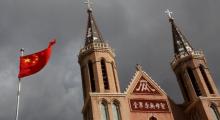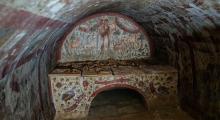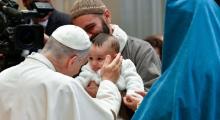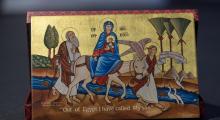Issued by the Catholic Center for Studies and Media - Jordan. Editor-in-chief Fr. Rif'at Bader - موقع أبونا abouna.org
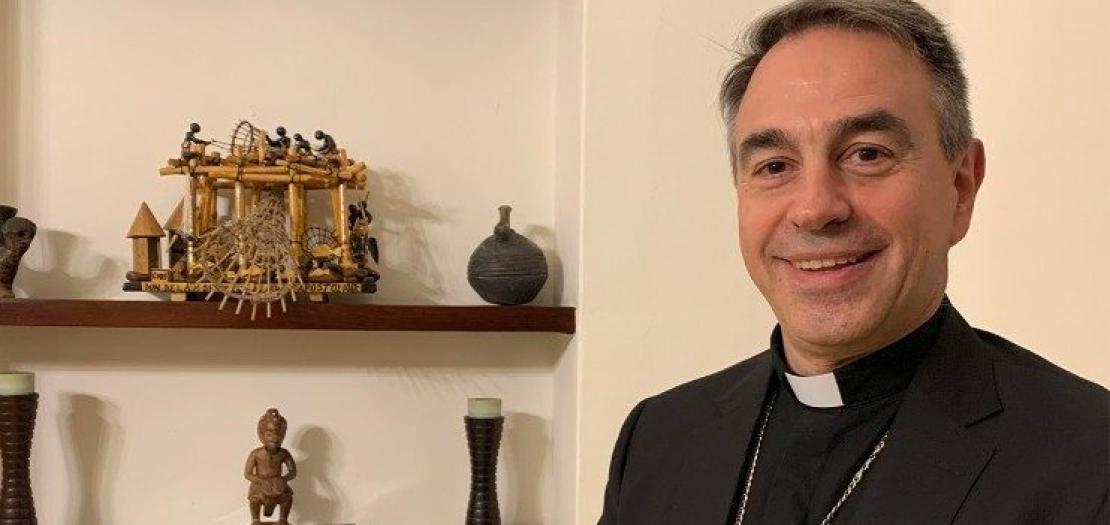
Addressing the 34th Standing Committee on Programs and Finance of the International Organisations for Migration (IOM) in Geneva on 13 June, Archbishop Ettore Balestrero, Apostolic Nuncio and Permanent Observer of the Holy See to the United Nations, highlighted the urgent need for a comprehensive, human-centred approach to “climate preparedness, disaster risk reduction, and climate change adaptation”.
Echoing Pope Francis' concerns
He began his address as representative of the Holy See by echoing the concerns of Pope Francis, underscoring in particular the escalating evidence of climate change, made even more evident by the rising numbers of displaced persons globally. "In 2022, nearly 33 million persons were internally displaced as a result of disasters, and in 2023, floods, storms, earthquakes, wildfires, and other disasters caused a further 26.4 million people to be displaced”, noted the Archbishop.
He highlighted that these figures reveal the human face of climate change and natural disasters, adding that "we must never forget that behind the statistics are real people whose lives are at stake”.
He noted that for them, “climate change is not an abstract notion” and that there is, therefore, “an urgent need to act to protect them while ensuring that they can thrive and live with their God-given dignity."
Protection of migrants
Turning then to the Global Compact for Safe, Orderly, and Regular Migration, Archbishop Balestrero highlighted the objectives put in place to develop practices for the admission and stay of migrants who have been forced to leave their countries due to sudden-onset natural disasters and slow-onset environmental changes.
With the growing number of climate-induced displacements, Archbishop Balestrero stressed the necessity for states to provide tangible solutions, including adaptation, mitigation, and resilience. "Even when they lack access to international protection, States cannot leave them without tangible solutions," he stressed, adding that "where this is not possible, it is important to recognise migration as a form of adaptation and to increase the availability and flexibility of pathways for regular migration."
Three critial points
The Archbishop then went on to make three critical points for the committee's consideration. The first is to acknowledge the link between the climate crisis and displacement, whether due to rapid-onset events like floods and storms or slow-onset processes such as desertification and sea-level rise.
The second point made by the archbishop was to scale up prevention, risk education, and community resilience to save lives and reduce the material and economic losses caused by natural disasters.
And finally, Archbishop Balestrero stressed the importance of proactively preparing people for displacement when unavoidable, by providing” sound information, support for migration decisions, and establishing solidarity networks to promote inclusion and integration”.
The call for an integral ecology
As Pope Francis recently reminded us, 'defending the dignity and rights of climate migrants entails defending the sacredness of each human life and demanding respect for the divine command to care for and defend our common home,'" Archbishop Balestrero noted, before warning against partial or economically-driven responses to the climate crisis, which he stressed could result in further displacements.
Bringing his address to a close, Archbishop Ettore Balestrero reiterated the Holy See’s call for an integral ecology, called for so often by Pope Francis, including in his encyclical Laudato si. This he said is “a means of managing disaster risks and preventing environmental problems”.
Finally, he added, "such integral ecology is inseparable from the notion of the common good, which also includes moral obligations towards future generations, small islands and developing countries, and the most vulnerable. After all, our care for one another and our care for our common home are intimately bound together."


